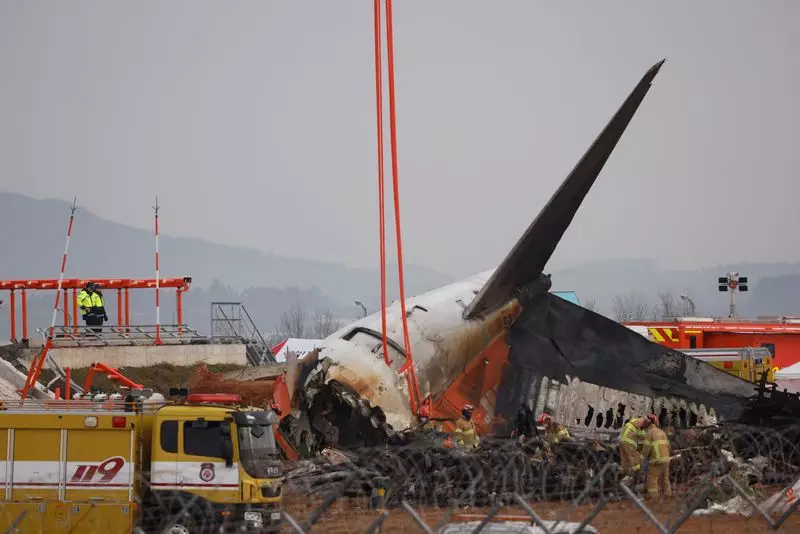The tragic air crash at Muan International Airport, which claimed the lives of 179 individuals, has emerged as a dark milestone in South Korea’s aviation history and profoundly impacted the stock market, particularly for Jeju Air, the budget airline at the center of the incident. Following this catastrophic event, Jeju Air’s shares plummeted to an unprecedented low of 6,920 won, representing an 8.5% decline shortly after the market opened. This dramatic decline reflects investor panic, demonstrating how swiftly tragedy can corrode market confidence. At its most severe point, Jeju Air’s stock experienced a staggering drop of 15.7%, ultimately erasing approximately 95.7 billion won ($65.2 million) from its market capitalization.
Broader Implications for Airline Stocks
Compounding the blow to Jeju Air was a notable decline in the stock prices of its parent company AK Holdings, which fell to levels not seen in 16 years, recording a 12% drop. Meanwhile, the performance of other budget airlines exhibited mixed signals, with Air Busan surging by more than 15%. Conversely, Jin Air and T’way Air experienced minor declines after brief upticks, exhibiting the varying market sentiments toward budget air travel in the wake of the incident. Established players in the aviation sector, such as Korean Air Lines and Asiana Airlines, also slid marginally, highlighting a tentative market environment even for the country’s larger, more established carriers.
In light of the tragedy, acting President Choi Sang-mok has mandated an emergency review of airline safety protocols after recovery efforts are concluded. This preventive measure underscores the urgency of addressing safety within the nation’s aviation sector, especially considering the potential for passenger apprehension that could ripple through the industry. Analysts, including Yang Seung-yoon from Eugene Investment Securities, predict that consumer trust in budget carriers may sustain lasting damage. The perception of safety is paramount in the airline industry, and if potential travelers perceive budget airlines as less reliable, it could hinder recovery.
In addition to the airline market, travel agencies have experienced a ripple effect as consumer behavior shifts in the wake of the crash. Reports indicate a doubling of tour package cancellations and a 50% decrease in new bookings for a leading travel operator. Travel agency stocks such as Hanatour Service and Very Good Tour faced significant drops of 7% and 11%, respectively. This trend reveals a growing hesitation among travelers, particularly those returning from vacations during a busy holiday season, as they reconsider future travel plans.
While short-term impacts appear significant, analysts maintain that the structural integrity of the travel market may remain intact. As time progresses, it becomes essential for the industry to rebuild trust and invest in safety measures to ensure the well-being of travelers. The road ahead demands prudent addressing of systemic concerns, and how well these challenges are managed will influence public perception and, ultimately, the recovery trajectory for Jeju Air and South Korea’s aviation sector.

